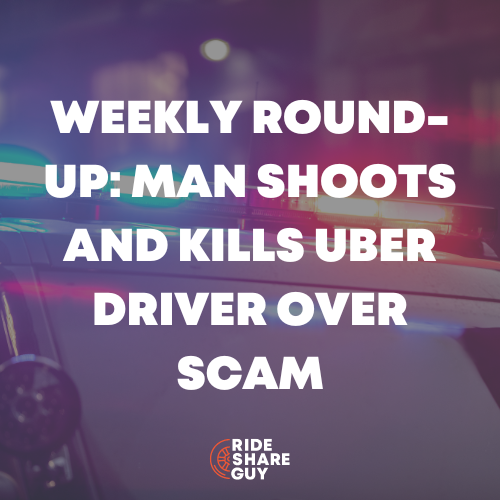In this week’s roundup, some legal issues and challenges are resolved, while others are just beginning. Also, should taxpayers be cleaning up after gig companies? Senior RSG contributor John Ince covers all the latest gig economy news below.
Uber updates its coronavirus compensation policy for drivers [Axios]
Sum and Substance: As the coronavirus pandemic continues to keep much of America at home, Uber adjusted its paid sick leave policy on Friday to expand qualifying criteria while instituting caps on the amounts it pays out.
Why it matters: Gig economy workers continue to have limited work protections and benefits even as they are putting themselves at risk to ferry food, groceries, and passengers.
My Take: This new policy seems simpler, but things are still muddy. I suspect they will get even muddier after people look into them. Don’t get too excited about the amounts here.
Uber drivers have fewer passengers — and face greater risks — than ever [Vox]
Sum and Substance: In the past month, a huge number of typical Uber destinations have closed their doors for the foreseeable future. Bars, restaurants, gyms, and movie theaters are all shuttered, offices and commercial districts are in stasis, and citizens have canceled the housewarmings and birthday parties on their calendars.
The whole country has lurched into inaction to try to flatten the curve, and that leaves a ride-share driver like Johnathan, 36, with a rapidly deteriorating customer base. He’s not sure where to turn next.
The fact is, the economics of ride-sharing are bad anyway. And I think this is an excuse or a reason to enact a change in my life. I’ve been doing it since 2016, and this is a time to sit back and reflect on the kind of projects I’d rather be doing. This pandemic is forcing a reassessment of life.
My Take: This is a Q & A with one Uber driver, but I suspect his reactions are pretty typical. Well worth a read, especially during these slow times.
Lengthy legal fight over Seattle’s Uber unionization law comes to an end [Geekwire]
Sum and Substance: The U.S. Chamber of Commerce, Uber, and the City of Seattle have agreed to walk away from a lengthy and complex legal battle over a law that would allow drivers to unionize.
A federal judge in Seattle dismissed the lawsuit, at the request of all parties, ending a once-heated battle that cooled down when the city embraced a new approach to driver protections. The dispute dates back to 2015 when the Seattle City Council passed a pioneering law that authorized Uber and Lyft drivers to collectively bargain. The Chamber sued Seattle on behalf of Uber and Lyft, claiming the ordinance violated federal antitrust laws and preemption statutes.
My Take: Maybe it was the Fare Share program, or maybe it was the virus, but all parties agreed to stop the litigation. I suspect they were just tired of arguing. In any case, it’s over.
Uber: Safety, Growth, Disrupted Price [Seeking Alpha]
Sum and Substance: The rides business is dropping dramatically as people stay at home due to the coronavirus lockdown.
Its huge cash position protects the company from temporary shocks.
The fundamental long-term business will continue its expansion as soon as the virus threat disappears.
Uber (UBER) is a desirable investment now. In essence:
The stock price dropped drastically.
The cash balance is sufficient to protect the firm from any significant damage.
The business was growing rapidly before the shock and will continue growing once the virus threat disappears.
My Take: Last week, we published two negative Seeking Alpha stories and Uber stock rose on six consecutive days. This week we publish a positive story and Uber stock takes a dive. Go figure…
Senate Democrats rip Trump Labor Department for attempting to exclude gig workers from unemployment benefits [Alternet]
Sum and Substance: A group of more than 30 Senate Democrats on Monday slammed President Donald Trump’s Labor Department for issuing guidance that could provide states with a green light to exclude gig workers such as Uber drivers and others classified as “independent contractors” from receiving expanded unemployment benefits under the new coronavirus stimulus law.
In a letter to Labor Secretary Eugene Scalia, a former corporate lawyer, the Democratic senators warned that sections of the department’s guidance (pdf) “appear narrow or ambiguous, which could make states think they need to exclude workers who Congress clearly intended to receive unemployment compensation through the Pandemic Unemployment Assistance (PUA) program.”
Gig workers are typically excluded from unemployment insurance benefits, but progressive members of Congress fought for their inclusion in the PUA, which was created by the multi-trillion-dollar coronavirus stimulus legislation Trump signed into law last month. The program expands unemployment benefits by $600 a month on top of state benefits for a period of four months.
My Take: It’s one thing to get something in the legislation. It’s another to actually put money in gig workers pockets. We’ll see how this plays out. I suspect some will get paid, but many more won’t get anything – through no fault of their own
Uber Eats, Grubhub, DoorDash And Postmates Face Class-Action Lawsuit Over ‘Exorbitant’ Fees [Forbes]
Sum and Substance: The big four food delivery service apps – Uber Eats, Grubhub, DoorDash and Postmates – have been hit with a class-action lawsuit accusing them of using their “monopoly power” to impose “exorbitant” commission fees on restaurants.
The lawsuit, filed in the US District Court for the Southern District of New York on Monday, takes issue with the delivery firms’ “No Price Competition Clauses” that force restaurants to charge uniform prices for menu items, even for food orders that were not generated through their digital platforms. In turn, his “unlawful price restraint” prevents restaurants from offering discounts to customers who would otherwise order directly or dine-in, the lawsuit alleges, and ultimately leads to customers being ripped off.
My Take: Lots of parties, contracts, and money changing hands. I’m sure they’ll figure it all out sooner or later. Meanwhile, SF Mayor has capped commissions at 15%. Seems like a better approach to me.
Uber and Lyft Aren’t Paying for Drivers’ Unemployment: You Are, Confirms Newsom [KQED]
Sum and Substance: Gig workers may qualify for unemployment claims. This funding would come from the federal CARES act according to the latest announcements from Gov. Newsom. …
The Secretary of the California Labor and Workplace Development Agency, Julie Su, released a statement on April 14, saying that the department was creating a new website for independent contractors to apply for the federal pandemic unemployment insurance (PUA). According to Su, the website is scheduled to open in two weeks and deliver PUA benefits in 24-48 hours….
Uber and other gig companies succeeded in getting the federal government to make its drivers eligible for Pandemic Unemployment Assistance (PUA) through the CARES ACT. But, to get this money, the drivers have to be recognized as contractors, not employees.
That puts states like California, where there is a legal battle for driver’s to be recognized as employees, in a difficult situation…
In a statement, the California Labor Federation said, “Gov. Newsom took action today to free up federal relief dollars for gig workers while asserting their rights as employees under California law, but it should never have come to this. All taxpayers are now on the hook as a result of these wealthy companies’ refusal to follow the law.” …
My Take: This is a bit confusing, but it all comes down to the independent contractor / employee thing. Uber wants their drivers to be independent contractors, and on the form they want the driver to so indicate. This sets a precedent – one could have implications down the road. We’ll see…
Uber withdraws 2020 guidance [Techcrunch]
Sum and Substance: Uber said Thursday it was withdrawing its 2020 guidance for gross bookings, adjusted net revenue and adjusted EBITDA, which were provided on February 6, 2020 during the company’s earnings call. The company’s previous 2020 guidance was gross bookings between $75 billion and $80 billion, adjusted net revenue $16 billion to $17 billion and an adjusted EBITDA loss of between $1.45 billion and $1.25 billion. Uber did not provide new guidance for 2020.
My Take: No surprise here. There was no way Uber was going to meet its guidance, given the current circumstances. The only questions now are how bad the revised guidance will be.
Readers, what do you think about this week’s roundup?
-John @ RSG



